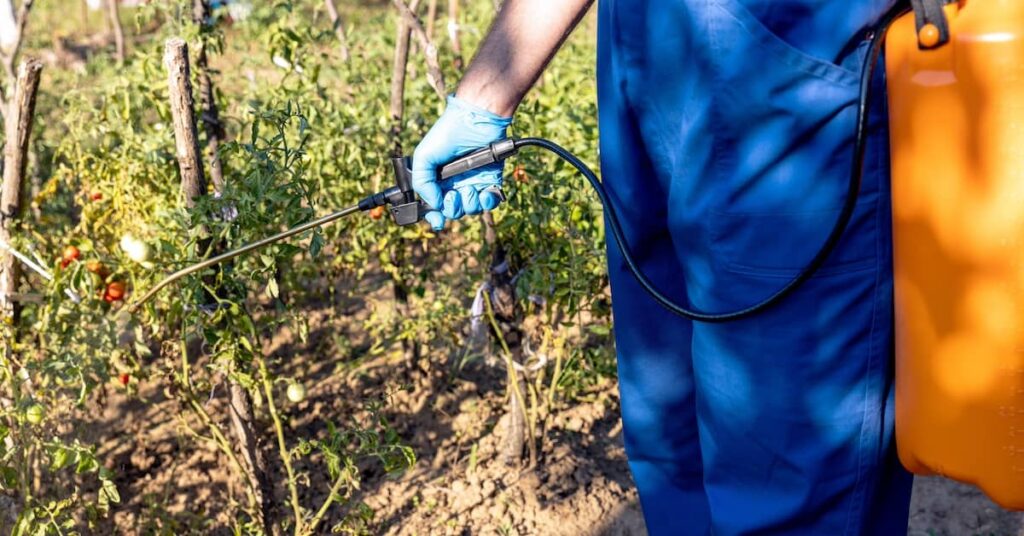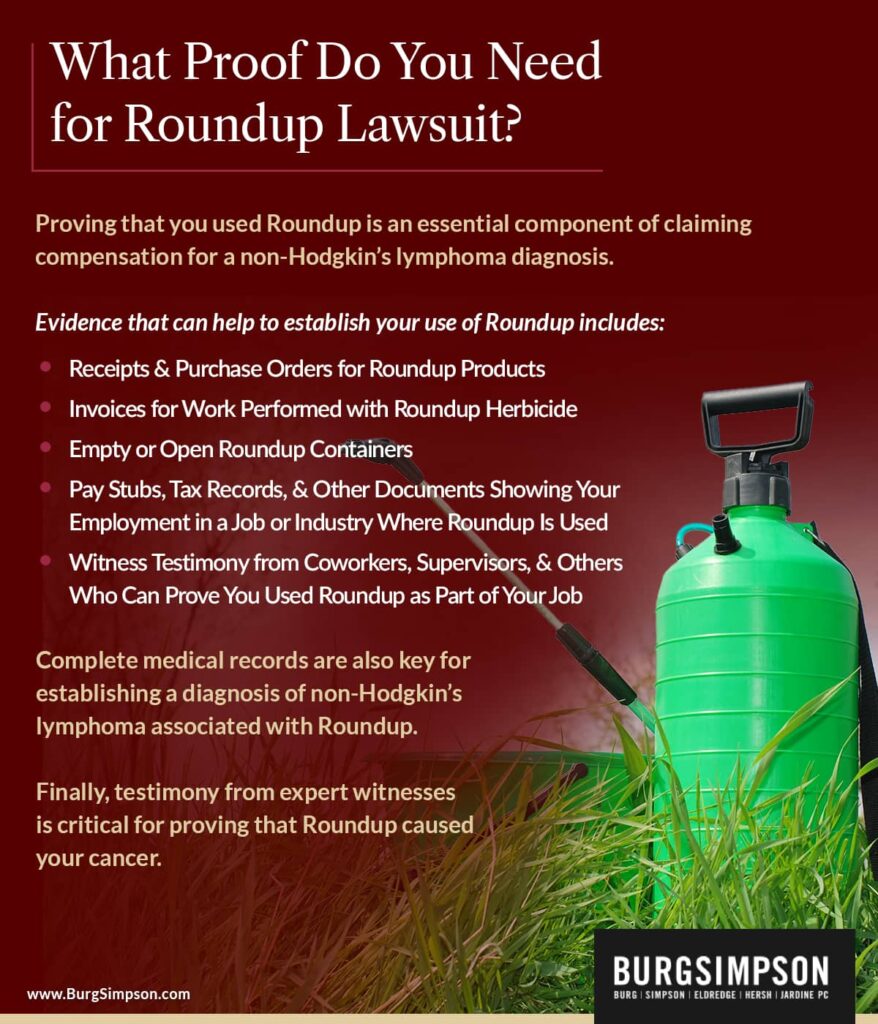
How Do You Prove Roundup Caused Your Cancer?
Litigation is ongoing for Roundup, a popular herbicide whose active ingredient is the dangerous chemical glyphosate. Glyphosate has been linked to non-Hodgkin’s lymphoma.
Non-Hodgkin’s lymphoma is a cancer that begins in the body’s lymphocytes, a type of white blood cell that is critical for warding off disease. Roundup exposure has been associated with multiple types of lymphoma, including:
- Anaplastic Large Cell Lymphoma
- Burkitt’s Lymphoma
- Cutaneous T-Cell Lymphoma
- Diffuse Large B-Cell Lymphoma
- Follicular Lymphoma
- Lymphoblastic Lymphoma
- Mantle Cell Lymphoma
- Marginal Zone Lymphoma
- Primary Central Nervous System Lymphoma
- Small Lymphocytic Lymphoma
Some types of non-Hodgkin’s lymphoma are aggressive and tend to progress quickly. Even if you receive a timely diagnosis and treatment, your life may never be the same. Unfortunately, fair compensation is not guaranteed for those with a Roundup-related cancer. Consulting a Roundup lawyer is the best way to protect your rights and explore your legal options.
Burg Simpson represents plaintiffs in Roundup cancer lawsuits nationwide. We have the experience and legal acumen to prepare a strong case on your behalf. Call 888-895-2080 today for a FREE and confidential case evaluation.

How Do I Know If I Qualify for the Roundup Lawsuit?
Studies show that frequent or long-term exposure to glyphosate makes an individual more likely to develop non-Hodgkin’s lymphoma. Occupational exposure is a significant risk factor, with people in the following jobs facing an increased risk of Roundup cancers:
- Farmers and agricultural workers
- Gardeners
- Landscapers and lawn care professionals
- Groundskeepers and maintenance workers
- Herbicide technicians
Roundup is also marketed for household use. As such, consumers who have used Roundup to care for their lawns and gardens may also have a greater likelihood of developing cancer linked to glyphosate. People who live in the vicinity of a home, farm, or other premises where Roundup was frequently used may be at risk as well.
If you or someone you love meets the criteria above and is diagnosed with non-Hodgkin’s lymphoma, you may qualify for a Roundup lawsuit. An experienced attorney can evaluate your case and gather the necessary evidence.
How Do You Prove That You Used Roundup?
Proving that you used Roundup is an essential component of claiming compensation for a cancer diagnosis. Evidence that can help to establish your use of Roundup includes:
- Receipts and purchase orders for Roundup products
- Invoices for work performed with Roundup herbicide
- Empty or open Roundup containers
- Pay stubs, tax records, and other documents showing your employment in a job or industry where Roundup is used
- Witness testimony from coworkers, supervisors, and others who can prove you used Roundup as part of your job
These and other types of evidence can help prove how long you have been using Roundup and the extent of your exposure. Knowledgeable lawyers can ensure that the evidence is collected in a timely fashion and your case is fully supported.
Why Choose Burg Simpson?
What Proof Is Needed for the Roundup Lawsuit?
In addition to proving that you were exposed to Roundup, you will need to prove that you developed cancer after using or being exposed to Roundup. Complete medical records are key for establishing a diagnosis of non-Hodgkin’s lymphoma associated with Roundup.
You will also need to prove that Roundup caused your cancer. This may be easier said than done.
Does Roundup Cause Cancer?
For many years, the connection between glyphosate (the active ingredient in Roundup) and cancer has been the subject of debate. In 2015, the International Agency for Research on Cancer (IARC) announced that glyphosate is “probably carcinogenic to humans.” However, the EPA has long held that glyphosate poses no risk to humans when used according to directions.
In recent years, a number of studies have supported the connection between Roundup and certain types of cancers. These include:
- In 2019, a meta-analysis of multiple studies on humans found that exposure to glyphosate increases the risk of non-Hodgkin’s lymphoma by 41%.
- A systematic review of 175 scientific studies (screened from more than 2,500 articles) published in 2023 supported the IARC’s previous conclusion that “glyphosate is a probable human carcinogen.”
- Research published in the journal Leukemia & Lymphoma in 2023 found a strong statistical correlation between glyphosate and several types of cancers, including non-Hodgkin’s lymphoma.
Testimony from expert witnesses is critical for proving causation in a Roundup cancer lawsuit. Experts can also help to establish negligence on the part of Roundup manufacturers (previously Monsanto, now Bayer AG), such as the failure to warn consumers about known risks.
Handling Roundup Cancer Claims Throughout the Country
Burg Simpson is one of the nation’s premier mass tort litigation firms. We have won numerous awards for our service to plaintiffs in mass torts and class actions, including recognition as a National Tier 1 Firm in multiple editions of U.S. News & World Report’s Best Law Firms in the Mass Tort Litigation / Class Actions – Plaintiffs category.
Our attorneys are committed to pursuing maximum compensation for the victims of Roundup cancers. We have the experience, knowledge, and resources to handle complex cases in state and federal court and fight for a favorable outcome for each client.
Burg Simpson is a national law firm serving clients in all 50 states. Contact us today for a FREE case evaluation.





